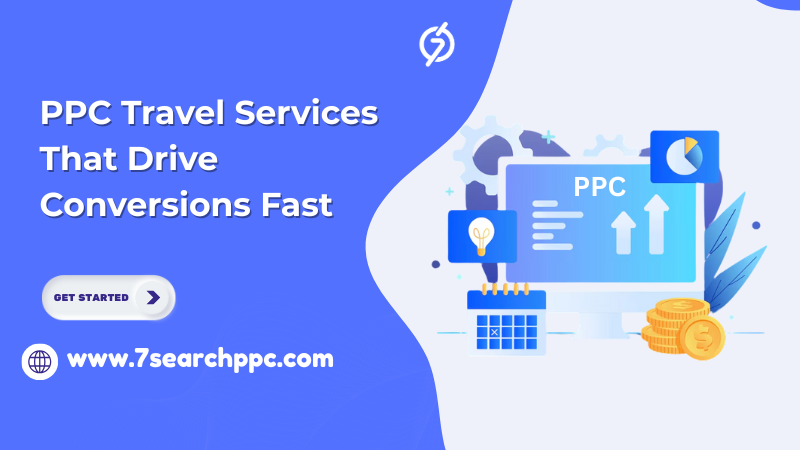Article -> Article Details
| Title | PPC Travel Services That Drive Conversions Fast |
|---|---|
| Category | Vacation and Travel --> Travel Services |
| Meta Keywords | Travel Advertising |
| Owner | Bela Arnold |
| Description | |
| In the competitive world of travel marketing, Pay-Per-Click (PPC) advertising has emerged as a powerful tool for driving conversions and maximizing return on investment (ROI). By strategically leveraging PPC campaigns, travel businesses can effectively reach their target audience, increase bookings, and enhance brand visibility. This article delves into the nuances of PPC travel services, offering insights and strategies to optimize your campaigns for rapid conversions.
Understanding PPC Travel AdvertisingPPC travel advertising involves creating paid ads that appear on search engines and other platforms when users search for travel-related keywords. Advertisers bid on specific keywords, and their ads are displayed to users who match these search criteria. The primary goal is to attract potential travelers to your website, encouraging them to take desired actions such as booking a flight, reserving a hotel, or purchasing a travel package. The Importance of PPC in the Travel IndustryThe travel industry is highly competitive, with numerous businesses vying for the attention of potential customers. Traditional advertising methods often fall short in delivering measurable results. PPC advertising offers several advantages:
Crafting Effective Travel AdsCreating compelling travel ads is crucial to capture the attention of potential customers and drive conversions. Here are key elements to consider: Engaging Ad CopyYour ad copy should be concise, clear, and compelling. Highlight unique selling points, such as exclusive deals, unique destinations, or special amenities. Use action-oriented language to encourage users to click on your ad. Relevant KeywordsConduct thorough keyword research to identify terms your target audience is searching for. Incorporate these keywords into your ad copy and landing pages to improve relevance and Quality Score. Strong Call-to-Action (CTA)A clear and persuasive CTA guides users on the next steps. Phrases like "Book Now," "Learn More," or "Get Started" prompt immediate action. Ad ExtensionsUtilize ad extensions to provide additional information and increase ad visibility. Extensions like site links, callouts, and structured snippets can enhance the user experience and improve click-through rates. Best Practices for PPC in the Travel IndustryTo maximize the effectiveness of your PPC campaigns, consider implementing the following strategies: Geo-TargetingSince travel decisions are often influenced by location, use geo-targeting to display ads to users in specific regions or cities. This ensures your ads reach individuals most likely to convert. Device TargetingUnderstand the devices your audience uses to search for travel options. Optimize your ads and landing pages for mobile devices, as a significant portion of travel searches occurs on smartphones. Seasonal AdjustmentsTravel trends fluctuate throughout the year. Adjust your PPC campaigns to align with seasonal demand, offering promotions or highlighting destinations that are popular during specific times. RemarketingImplement remarketing strategies to re-engage users who have previously visited your website but did not complete a booking. Tailored ads can remind them of their interest and encourage conversions. Advertising on Travel SitesAdvertising directly on travel-related websites can be an effective way to reach a targeted audience. Platforms like Expedia, TripAdvisor, and Booking.com offer advertising opportunities that place your brand in front of users actively seeking travel options. Benefits of Advertising on Travel Sites
Considerations
7Search PPC: A Smart Choice for Travel Advertisers7Search PPC is an emerging PPC advertising network that offers tailored ad solutions for travel businesses. Whether you're promoting hotels, vacation packages, or tour guides, 7Search PPC enables you to reach a targeted audience across premium publisher sites. Why Choose 7Search PPC for Travel Ads?
With 7Search PPC, travel advertisers can enjoy fast campaign approvals, easy optimization, and real-time performance tracking to ensure high ROI and quick conversions. Create Your Campaign & Get Results!Travel Ads PPC: Key Metrics to MonitorMonitoring key performance indicators (KPIs) is essential to evaluate the success of your PPC campaigns. Important metrics include:
Regularly analyzing these metrics allows you to make data-driven decisions and optimize your campaigns for better performance. ConclusionPPC travel advertising is a dynamic and effective strategy for driving conversions in the travel industry. By understanding the intricacies of PPC campaigns and implementing best practices, travel businesses can enhance their online presence, attract qualified leads, and achieve significant growth. Remember, continuous optimization and staying informed about industry trends are key to maintaining a successful PPC strategy. FAQS (Frequently Asked Questions)What is the average cost per click in the travel industry?Ans: The average CPC in the travel industry can vary based on factors like competition, keyword selection, and targeting. It's essential to monitor your campaigns and adjust bids accordingly to maintain a cost-effective strategy. How can I improve my Quality Score in Google Ads?Ans: To improve your Quality Score, focus on creating relevant ad copy, using targeted keywords, optimizing landing pages for user experience, and maintaining a good click-through rate. Is it better to focus on broad or long-tail keywords?Ans: Both broad and long-tail keywords have their place. Broad keywords can attract a larger audience, while long-tail keywords often lead to higher conversion rates due to their specificity. A balanced approach is recommended. How often should I review and adjust my PPC campaigns?Ans: Regular monitoring is crucial. Review your campaigns at least weekly to identify areas for improvement and make necessary adjustments to optimize performance. | |

